In today’s job market, you need to stand out from the competition to get noticed. An effective way to do this is by leveraging a medical resume. A resume that targets medical positions is essential for individuals with non-clinical education and experience. These are usually entry-level roles that require special training or certification for employment rather than years of experience in a particular field. A well-written medical resume can be the difference between being considered for an interview and being passed over as another candidate who appears to be more qualified at first glance. Let’s take a look at some tips on how to write a medical resume that will catch the attention of recruiters in the healthcare industry.
Medical Resume Example

Download This Medical Resume as PDF
Medical Transcriptionist Resume Example
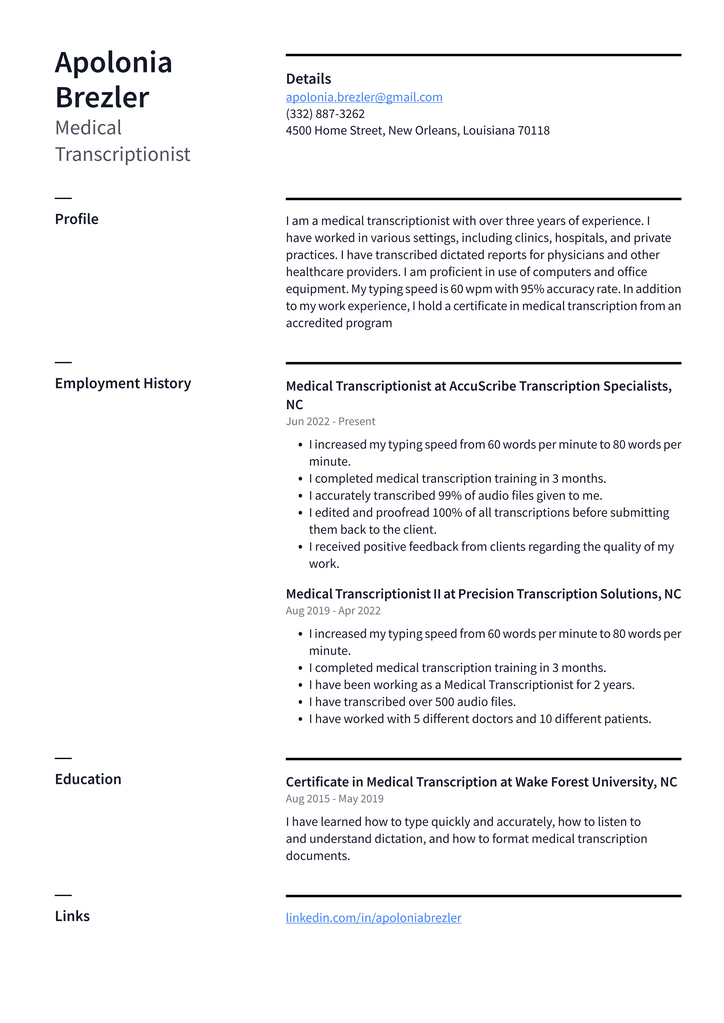
Download This Medical Transcriptionist Resume as PDF
Registered Nurse Resume Example
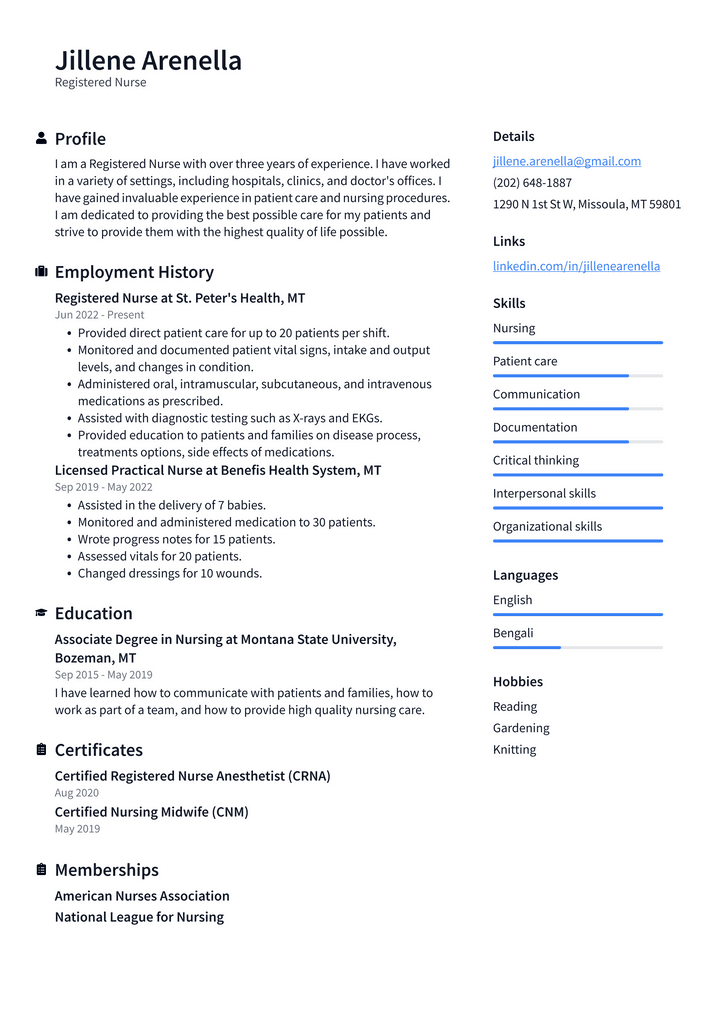
Download This Registered Nurse Resume as PDF
Medical Assistant Resume Example
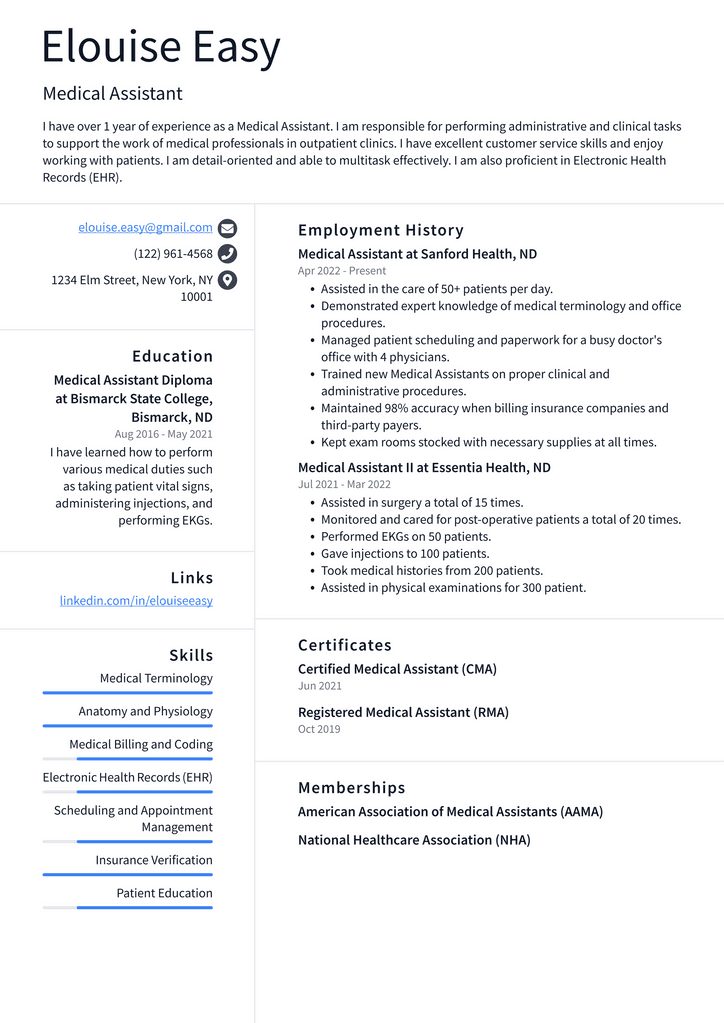
Download This Medical Assistant Resume as PDF
Licensed Practical Nurse Resume Example
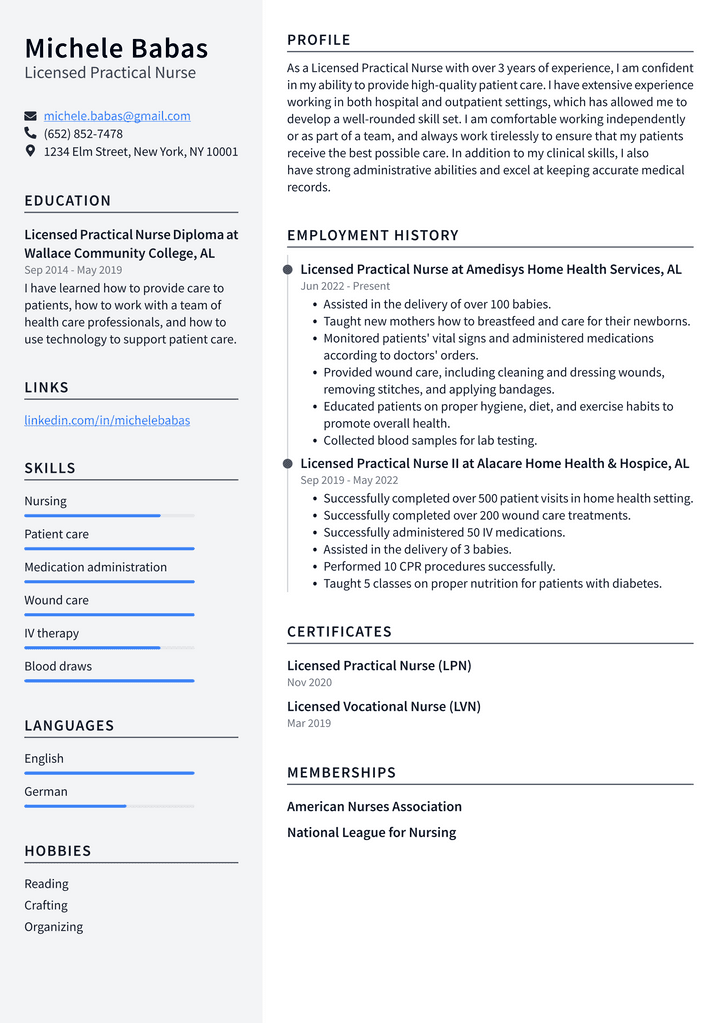
Download This Licensed Practical Nurse Resume as PDF
Medical Receptionist Resume Example
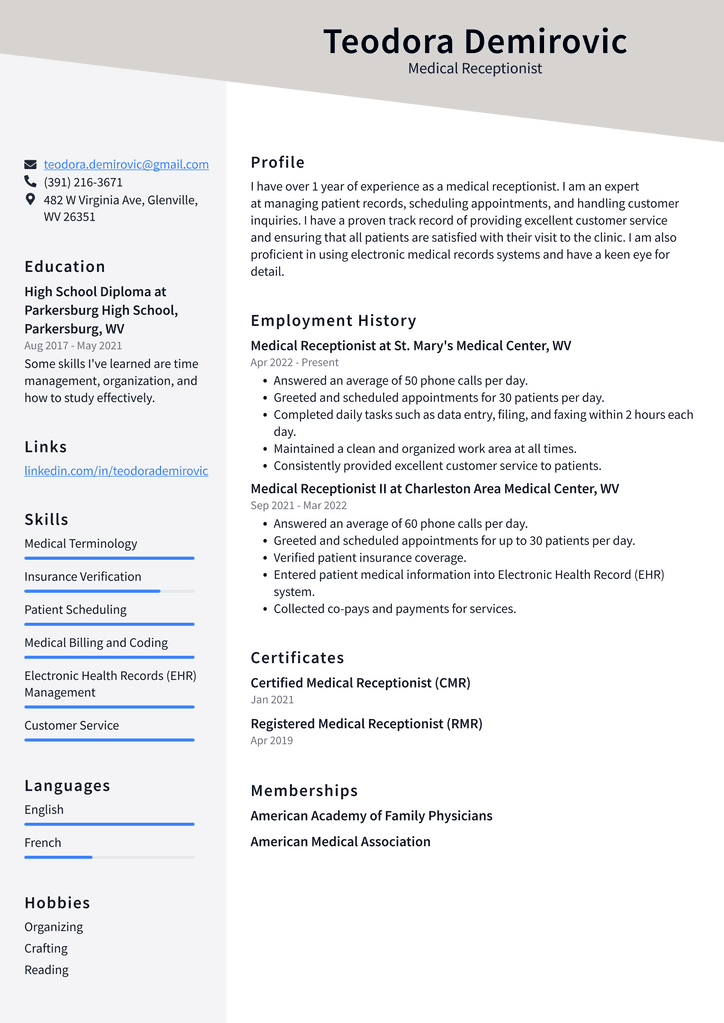
Download This Medical Receptionist Resume as PDF
Medical Billing and Coding Specialist Resume Example
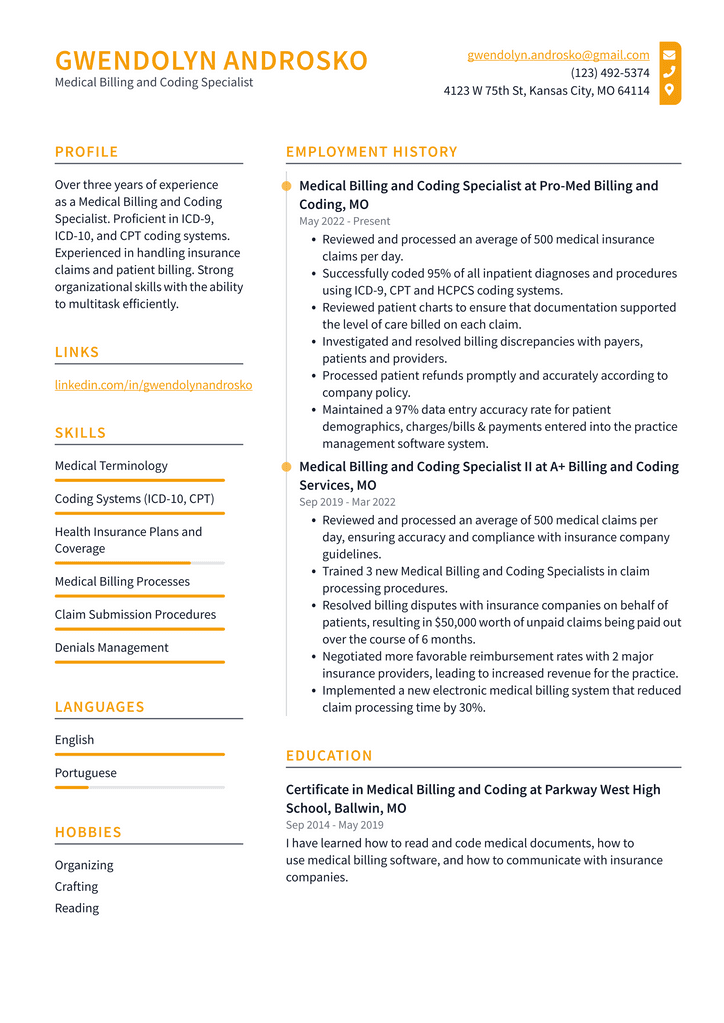
Download This Medical Billing and Coding Specialist Resume as PDF
What is a Medical Resume?
A medical resume is a targeted resume focusing on the skills, experience, and education most relevant to the healthcare industry. Unlike a general overview for professional positions, it does not focus on your career history or your qualifications for the job. Instead, it highlights the specialized skills you have gained through your education, work experience, and extracurricular activities. A medical resume and your employment application may be the only document you submit. In many cases, a resume, references, and other supporting documentation are required, but a medical summary is often enough to get you to the interview stage.
Before You Start Writing
Before you start writing your medical resume:
- Make sure you do your research.
- If possible, look through job postings and list the qualifications required.
- Ask yourself what makes you a good fit for these positions. If you don’t have the necessary experience, list what you can offer.
Medical resume writing requires you to be specific. You can’t just say, “I’m a great team player” or “I’m a quick learner.” You need to be able to back up your claims with examples from your life. If you don’t have much healthcare experience, focus on your transferable skills. These are the skills you used in other industries or professions that apply to healthcare. For example, if you are applying for a job as a medical assistant, you would want to highlight any experience you have working with patients, dealing with insurance companies, or performing clerical duties.
Tips for Writing a Responsive Resume
Use action verbs. Action verbs are more potent than adjective-based language because they imply an action instead of a description. For example, saying that you “relied on others in a team setting” sounds like a team player, whereas saying that you “collaborated with peers to achieve common goals” implies that you did this in your career. Keep it short! Most healthcare employers will only read the first couple of paragraphs if that. Be specific when highlighting your qualifications, and don’t waste space with unnecessary details. Don’t lie. It’s tempting, especially if you don’t have much healthcare experience. But in the long run, it’s not worth it. It will only get you caught and hurt you in the job market overall.
Conclusion
To get hired in the healthcare industry, you need to stand out from the crowd. A medical resume is a great way to do just that. It highlights your skills, experience, and education so a potential employer can see why you are a good fit for the job. Keep in mind that a medical resume is different from a general resume. It does not include a job history or qualifications; it focuses on the skills, experience, and education most relevant to the healthcare industry. Before you start writing, research to ensure that your resume is targeted toward the appropriate jobs.